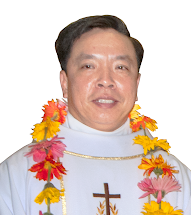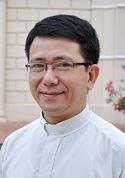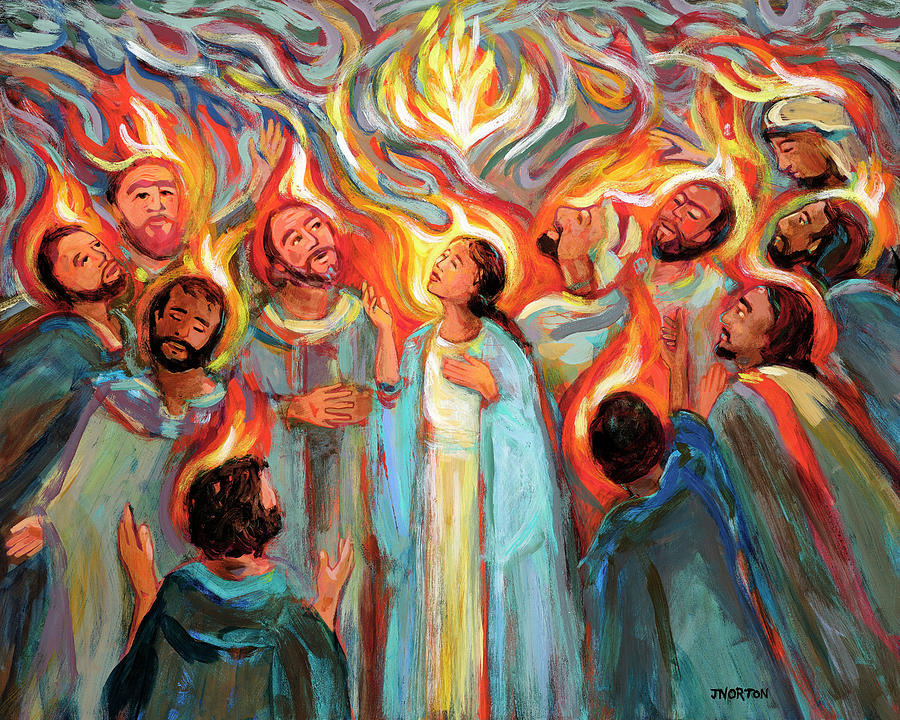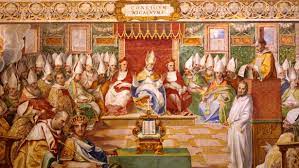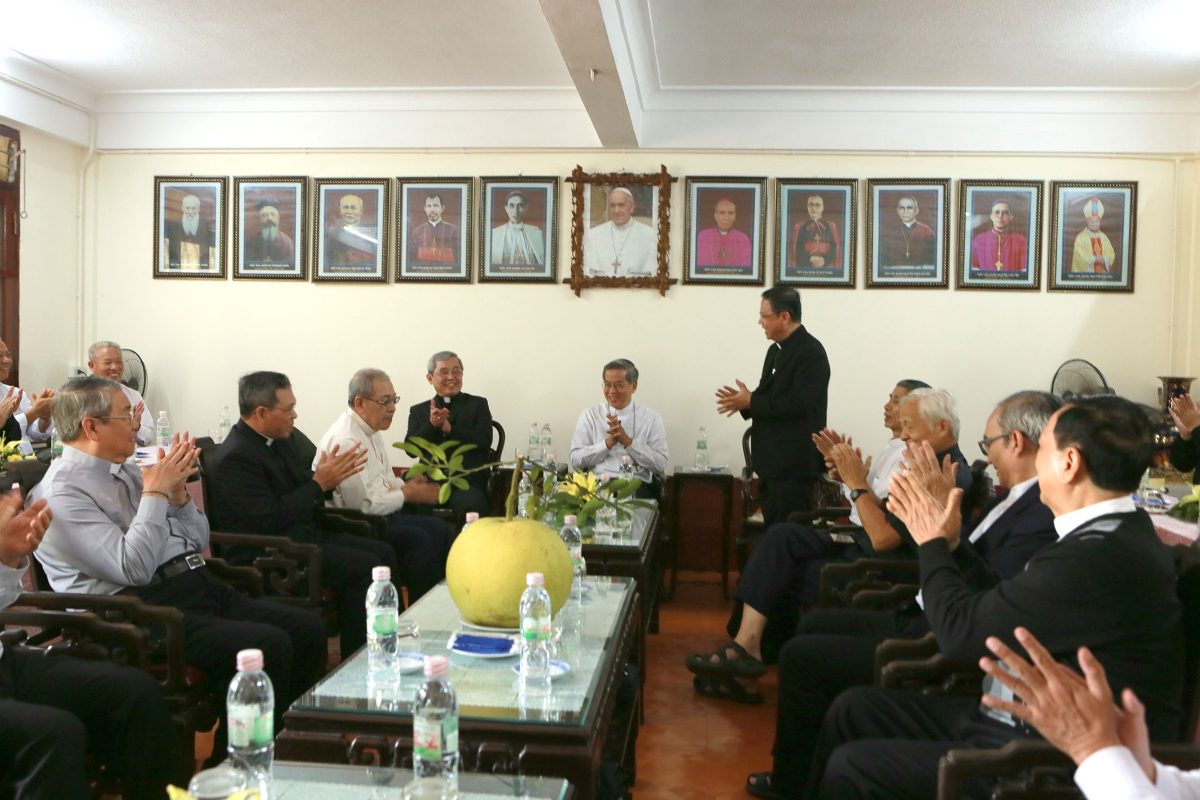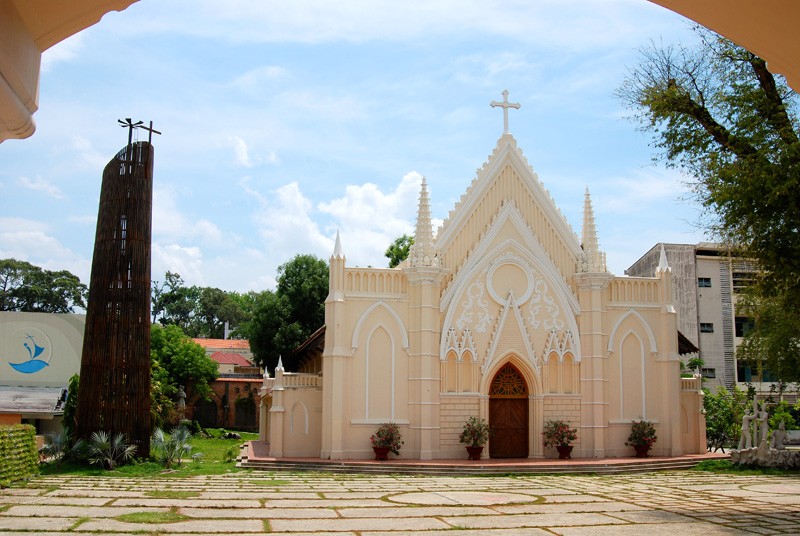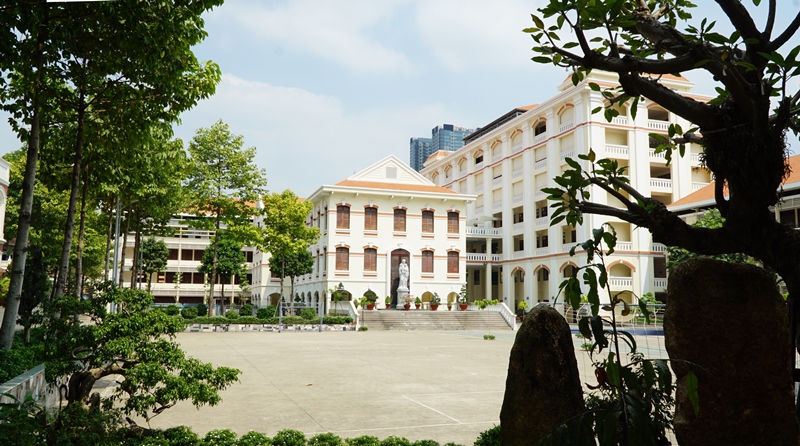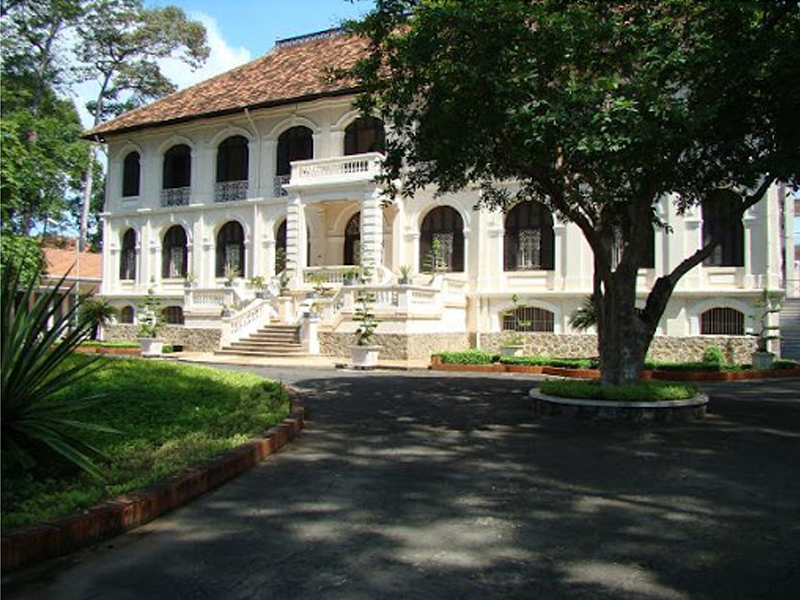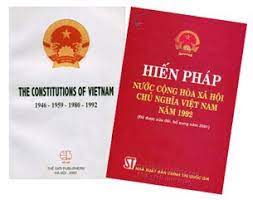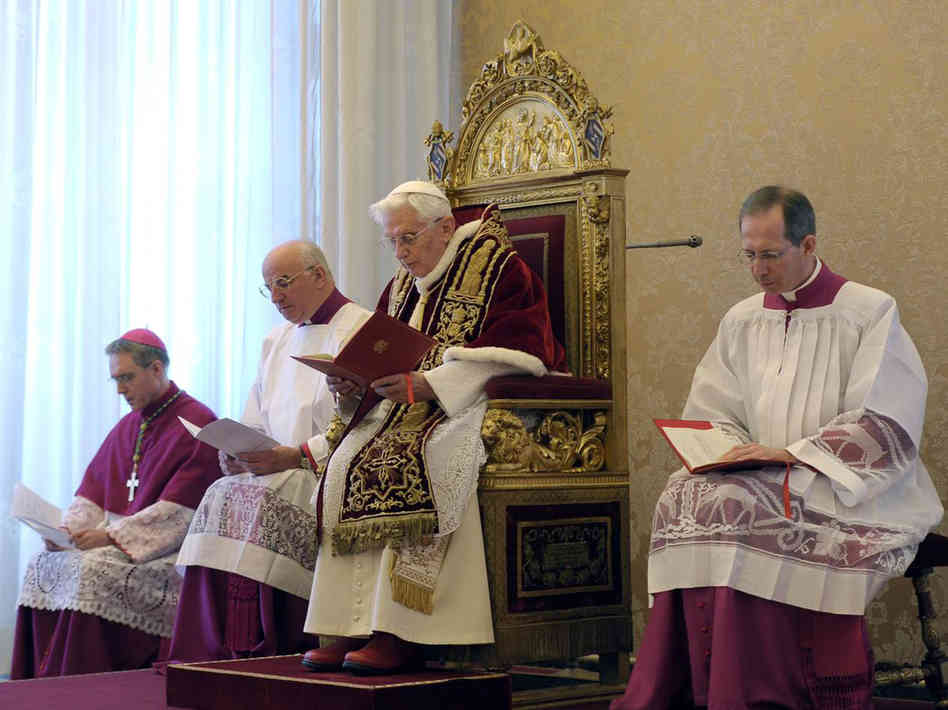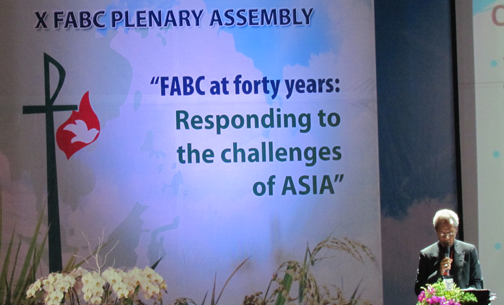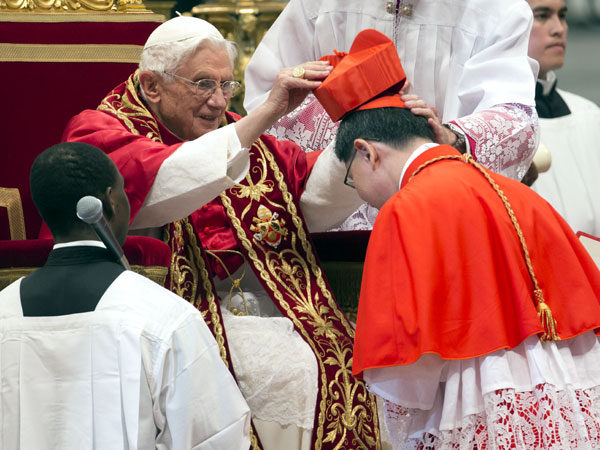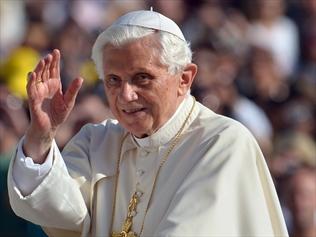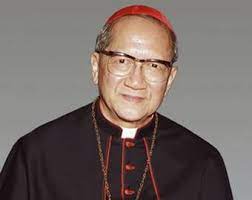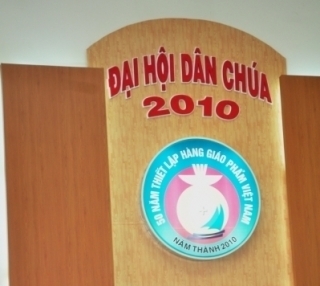FABC Plenary Assemblies: An Attempt to Discern the Signs of the Times in Asia
Role of Plenary Assemblies
The Federation of Asian Bishops’ Conferences (FABC) right from its first Plenary Meeting recognized that their coming together is a pioneering quest of Asian Church for "new meanings in their lives and endeavors, to overcome destructive forces and to shape a new integration in our societies." The Bishops proclaimed that as pastors they would seek and read the signs of the times and discern with their people whatever they must accept and foster in their situation and what they must reject and refuse (Cf. FABC Plenary-1).
Over the last four decades, the Bishops during their Plenary Assemblies have exchanged stories, shared problems and successes, discerned the movement of the Spirit in the life of Asia’s people, and increasingly recognized what they are called to do in the face of challenging situations. FABC is the only Pan- Asian structure that can authentically speak about the realities of the Church in Asia because every statement is deliberated in an assembly which meets every 4 years participated by more than 100 official delegates consisting of Bishops, officials of the various Offices, theologians, and experts involved in various ministries. The Plenary Assemblies strive to study relevant issues of the Church in Asia through lectures, workshops and group discussions as wells their personal sharing during meals and recreation. All these are done imploring the guidance of the Holy Spirit during Eucharist and meditative prayers. Edmund Chia rightly remarks in his study: “In a sense, the Plenary Assemblies … are really occasions for living as "Church" together and with Church peoples from different ministerial sectors and from different geographical regions.”
Archbishop D S Lourdusamy (now Cardinal Emeritus) echoed this in his inaugural address to the Second Plenary in Calcutta in 1978 where he defined FABC as a labour of apostolic love for the founding Fathers. He defined FABC as “an effective instrument for quickening a sense of pastoral concern and solidarity in the Christian community in the whole of Asia. The work that the FABC has accomplished down through the years is an ongoing tribute to the ecclesial sense of those who felt the need of placing at the service of the Church in this part of the world such an organ of close and effective co- operation and co-ordination. It has contributed much to fostering and deepening in the hearts of all a new awareness of the Church as a communion”.
Fr Felix Wilfred, an Indian theologian and consultant to the FABC, encouraged bishops in his background paper for the VI FABC Plenary Assembly in Manila in 1995 that even if the approaches to be taken and the means to be adopted lack full clarity, bishops must "search together, act together and bear collective responsibility" for the mission of the Church more than ever before particularly because Christians are a minority in Asia.
Reflecting on the 25 years of FABC's existence, Archbishop Michael Rozario of Bangladesh testifies to this: "Our Federation has been for us a very concrete and effective forum for sharing our Asian way of thinking about the implications of the Gospel of Jesus for all the peoples of Asia.” The primary focus of FABC Statements or documents is primarily pastoral, never theological nor doctrinal. They are primarily aimed at being inspirational because of the authenticity of its directives and message. Right from the beginning Statements are prefaced with the cautionary words that they have no binding authority. The beauty of these statements lies in this that though it has no binding authority, they have greatly influenced the thinking and way of life of the Catholic Church in Asia. They challenged Asian Catholics to be “a new way of being Church”, a Church that is committed to becoming a “community of communities” and a “credible sign of salvation and liberation".
That is why Edmund Chia says the following in the above cited document: “The Statements from the Plenary Assemblies are not only reflective of the experience of FABC but also very much accepted and co-owned by each and every Episcopal Conference. …..Their reflections, together with the reflections offered by the resource persons and messages ….constitute the raw data for the drafting of the Statement. Working under the pressure of time, the drafting committee brings out the Statement towards the end of the assembly and subjects it to a vote. Only the official delegates, viz., bishop-members, are allowed to vote. FABC Statements can therefore be regarded as at once the Asian Bishops' voice as well as the Asian Church's voice. Moreover, since many of the Statements are drafted under the influence of some of Asia's best theologians, one can even suggest that the voices of the Asian Bishops are often times very similar to the voice of Asian theologians. By extension, FABC theology is very similar to what is often regarded as Asian theology.”
Sequence of Plenary Assemblies
Here below are the themes, venues and the years when the last nine Plenary
Assemblies took place.
|
Year |
Venue |
Theme |
|
1974 |
Taipei |
Evangelization in Modern Day Asia |
|
1978 |
Calcutta |
Prayer: The Life of the Church in Asia |
|
1982 |
Bangkok |
The Church: A Community of Faith in Asia |
|
1986 |
Tokyo |
The Vocation and Mission of Laity in the Church |
|
1990 |
Bandung |
Journeying Together Towards the Third Millennium |
|
1995 |
Manila |
Christian Discipleship in Asia: Service to Life |
|
2000 |
Samphran (Thailand) |
A Renewed Church in Asia: A Mission of Love & Service |
|
2004 |
Daejeon |
The Asian Family: Towards a Culture of Integral Life |
|
2009 |
Manila |
Living the Eucharist in Asia |
Some high lights from FABC General Assemblies
Plenary I at Taipei in 1974
The First Plenary Assembly began in 1974, with reflection on "Evangelization in Modern Day Asia" paved the way for nine successive plenary assembly discussions. Hundreds of bishops at that First Plenary Assembly in Taipei spelled out the FABC’s perspective of evangelization as "proclaiming by word and witness the Gospel of the Lord."(#10)
Its final statement and recommendations said that the local Church is "the realization and the enfleshment of the Body of Christ in a given people, at a given place and time." It was to be immediately and primarily the agent and subject of evangelization in contemporary Asia.
As a "little flock" in a continent of rich diverse cultures, religions and philosophical traditions, the assembly resolved to make dialogue the preferred approach to evangelization. Moreover, it asserted that dialogue should be conducted at three levels: with a people’s culture (inculturation), with a country’s religions (interreligious dialogue), and with the poor.
Plenary II at Calcutta in 1978
Bishops linked the Church's mission with prayer. During the Second Plenary Assembly in 1978 in Calcutta the main theme was Prayer - The Life of the Church of Asia. The bishops expressed concern about "disintegration of our traditional societies" resulting from "depersonalized relationships, disorientation and loneliness," and warned that secularization, worship of technology, materialism, secularism and commercialism "erode religious values and often suffocates the aspirations of the human spirit." They resolved to pay greater attention to developing the Church in Asia as "a deeply praying community whose contemplation is inserted in the context of our time and the cultures of our peoples today. (#8)
What is Christian prayer? It is conscious personal communion with God the Father through Jesus Christ by the power of the Holy Spirit. It is the insertion of our whole selves, of our life and action, into the prayer of Jesus. We pray in the name of Jesus; we pray with Jesus. And this prayer is always a free gift of God.
o Christian prayer is a prayer within the community of those who have accepted the Gospel.
o Christian prayer is centred around the Eucharist, source and summit of a worship that is uniquely “sacramental” and “ecclesial”.
o Christian prayer is a prayer of self-gift to the brethren, for it creates the freedom of loving commitment. It enables us to find Christ in our brothers and sisters, especially the suffering, the poor and the powerless. It thus sends us into the world to transform it according to the designs of the Father.
This is the Church’s gift of prayer to Asia!
Plenary III at Bangkok in 1982
The Third Plenary Assembly in Bangkok in 1982, focused on the theme: A Community of Faith in Asia. It stressed the communion of faith as the distinguishing mark of the Church among other communities of Asia. The Bishops declared their appreciation for FABC in the following words: “The Asian Bishops have come to know and understand one another better, and bonds of friendship and solidarity have grown among them. Surely, for shaping a community among the churches in Asia, this is a wonderful beginning and full of promise for the future. For unity is first of all a oneness of minds and hearts in friendship. The Asian bishops have come to appreciate better what the Episcopal conferences and local churches in each country are doing, what the situations and problems they face are like, so that in a significant way, their joys have become the joys of all, and their setbacks and sorrows, grieves which touch the lives of all”. (# 3.1)
The statement towards the renewed community of faith stressed: “The local church is called to give witness to the meaning and values it professes, incarnating these in the ways of life of its own people, expressing them in its presence, dialogue and praxis in all the spheres of its activity as Church in history, within its own real world. Finally, it constantly moves forward in mission, as it accompanies all humankind in its pilgrimage to the Kingdom of the Father”. (#15)
“Our theological vision must be turned ever more resolutely to the Church’s responsibility in the world, in the public spheres, in the construction of a more fully human future for Asian peoples. We must be beyond merely seconding Pope John Paul’s words, that “the preference for the poor is a Christian preference,” and that “it expresses the concern of Christ who came to proclaim a message of salvation to the poor… the poor who are indeed loved by (the) God….who guarantees their rights”. We must now make them the real pattern of our daily praxis”. (#16.1)
Plenary IV at Tokyo in 1986
The Fourth Plenary Assembly, convened in 1986 in Tokyo, focused on the vocation and mission of laity in the Church as the Universal Church prepared for the World Synod of the Laity. The assembly examined the role of lay faithful in politics, business, family, education, labor and health services. The Assembly took note of the grave reality of Asia in the following words: “The battered condition of Asia is before us. Its poverty, wretchedness and misery bear in themselves the contradictions of humanity. Asia “groans with pain, like the pain of childbirth” (Rom 8,22). It “waits for God” to set its “whole being free” (Rom 8,23)”. (#1.3)
It discerned the role of the laity in following words: “The need of the hour in Asia is for competent and principled lay people to enter into the realm of party politics and, from within, influence the philosophies, programs and activities of political parties and personalities for the common good in the light of the Gospel”. (#3.1.6)
It particularly studied the situation of youth who comprised 60% of Asia's population and resolved that the Church of Asia "must become in a certain sense a 'Church of the young,' if it is to transform the 'face of Asia.' " It also examined the plight of women and acknowledged the need for the Church to "speak powerfully about the plight of Asian women and become their voice" in situations of oppression.
The letter of Pope John Paul II to the Plenary stressed the importance of youth in Asia in the following words: “The missionary vitality of the Church in the various regions is closely connected with the internal life of the local Churches. The difficult situation in which the Church is sometimes obliged to live, and the fact that in Asia the Christian communities constitute small minorities, have at times led these communities to appear self-absorbed and turned in on themselves. Yet the Church cannot be content with putting her own house in order, creating a safe haven in which to live and grow spiritually. The pilgrim People of God is a missionary people, and it is precisely this missionary role of the church in Asia which calls for the active and joyful collaboration of the laity, working side by side with the priests and religious. The example of Korea, where the faith was introduced and spread by layperson, is symbolic and stimulating”.
Plenary V at Bandung in 1990
During the Fifth Plenary Assembly in 1990 in Bandung, Indonesia, the participating bishops, priests, religious and lay people reflected on partnership in the Church's evangelizing mission. Their final statement on the theme Journeying Together Toward the Third Millennium sought "the new way of being and becoming Church in Asia, and also the spirituality which must inform it." (#12)
The Plenary noted that unfortunately for many Catholics, faith is only something to be received and celebrated. They do not feel it is something to be shared. The new way of being Church involved a revitalized passion among all Catholics for engaging in mission through the three levels of dialogue informed by the Spirit. "The Church in Asia will have to be a communion of communities, where laity, Religious and clergy recognize and accept each other as sisters and brothers" who are "called together by the Word of God," the bishops said. The bishops realized that the pastoral response of the Church in Asia will consist in the following process: (a) dialoguing with the realities of Asia from within; (b) discerning the movement of God’s Spirit in Asia; and (c) translating into deeds what the Spirit bids us to accomplish.
Plenary VI at Manila in 1995
The theme of the Sixth Plenary Assembly, held in Manila in 1995, was Christian Discipleship in Asia Today: Service to Life. It was a special occasion of grace as the bishops pointed out: “On this occasion a singular grace for us is likewise the moving presence of Pope John Paul II. With him we not only celebrate the 25th anniversary of the resolution to form a structure that would later become the FABC, but also the 25th year of Radio Veritas Asia, the 400th year of the Archdiocese of Manila….”. Indeed these festivities are peak moments of God’s grace to the Church in Asia, in communion with one another and with the Hoy Father – at the service of life.
Their final statement expressed concern for the poor, migrants, refugees and other vulnerable sectors impacted by globalization and violence, including growing religious extremism and fanaticism. Family, women and girl child, youth, ecology and displaced persons were identified as the five pastoral priorities of the Church in Asia.(#13). The bishops concluded their statement with the following words:”Though our pastoral directives for action touch on many issues of concern, we appeal for a particular pastoral focus on these five major challenges”.
Plenary VII at Samphran in 2000
The Seventh Plenary, held in 2000 at Samphran (Thailand), summed up the dawn of new millennium as follows: “The dawn of the new millennium is a time of crisis. Yet a time of crisis, as Scripture and the whole history of the Church show us, is a time of new beginnings, of new movements. The thirty-year history of FABC has been a concerted series of movements toward a renewed Church”. The final statement on A Renewed Church in Asia: A Mission of Love and Service reaffirmed that "the most effective means of Evangelization and service in the name of Christ has always been and continues to be the witness of Life." It also stressed that "Asian people will recognize the Gospel that we announce, when they see in our life the transparency of the message of Jesus and the inspiring and healing figure of an existence immersed in God."
The bishops recommended formation in mission for laity, priests and religious adapted to cultural contexts of Asia, and proposed formation in mission for seminarians and continuing formation for priests. An integral approach to mission issues was also recommended.(#14)
Plenary VIII at Daejeon in 2004
For the delegates to the Eighth Plenary Assembly, which took place in 2004 in Daejeon, Korea,the focal point for evangelization and renewal in Asia was the family. That assembly’s theme, The Asian Family: Towards a Culture of Integral Life, underscored the need for holistic family ministry that builds up family spirituality, communion and solidarity so it can reach out to other people. It emphasized the fact that “family ministry should empower families to become evangelizers such that ministry is not only for families but by families”.
The final statement of that assembly declared, "At the very center of this social ferment is the Family, the cellular receptor of emerging cultures as well as initiator, for good or for bad, of influential cultural forces. Even today we refer to the Family as a point of reference for social, political, economic and religion-based ideal relationships."(15).
Plenary IX at Manila in 2009
The last assembly, held in 2009 in Manila, centered on the significance of the Eucharist in social transformation. When the delegates reflected on the fact that “In Asia, where the characteristic mode of the Church’s existence is that of dialogue, the Eucharist is a unique experience of God’s dialogue with us and our response to God: a dialogue of life, a dialogue of love.” On the theme Living the Eucharist in Asia, they concluded, "Mission is never without contemplation. As we testify to Christ's presence, we also discover and behold Him present in the poor, in creation, and in history." (#16)
Living in the Eucharist impels us to retrieve this key vision. In Asia as in many parts of the world, the mindset of commodity has replaced that of gift. Human beings, relationships, work and meaning have been subjected to untold suffering due to the “commoditization” of life. Helplessness and meaninglessness often result from this tragedy.
Creation and human labour have become victims as well. Greed has robbed creation of its mystery. Profitability has supplanted a sense of awe before the grandeur of God’s work in nature. Human labour does not command the respect due to God’s partners in administering the world. One of the most abused sectors of society is that of the labourers. Denied just wages and dignified working conditions, workers are sacrificed on the altars of avarice and revenue. The earth cries out to God. Labourers cry out to God. In the Eucharist, we are certain that God hears them and through the Holy Spirit’s re-creating action, God will transform the earth and human work again. Paradoxically bread reminds us not only of the gift of food but also of hungry and malnourished people, of scandalous gaps in the lifestyles of the rich and the poor, of exorbitant prices of goods beyond the buying capacity of the poor, and of the helplessness of working parents to provide a bright future for their families. It is puzzling that wine, sign of the festive character of life, calls to mind images of wild drunkenness, of wives beaten up by alcoholic husbands, of victims of intoxicated attackers and of families going bankrupt due to vice. But there is hope in the Holy Spirit’s action and in our appreciation of simplicity. There is hope in the healing of creation through the Paschal Mystery of Christ.
X Pleanry to be held at Xuan Loc in 2012
The X Plenary was to be held in Vietnam from November 19-24 but it is now postponed to December 10-16, 2012 due to the absence of some participant Asian bishops who will be attending the consistory for six new cardinals including Archbishop Antonio Tagle of Manila, Philippines and Archbishop Baselios Cleemis Thottunkal of Trivandrum, India. The plenary will now be held in Vietnam from 10 to 16 Dec 2012 with about 100 participants of Bishops, officials of the various Offices, theologians, and experts involved in various ministries. It will be also the occasion to celebrate the FABC's 40th anniversary. The theme will be as follows: FABC at 40 years: Responding to the Challenges of Asia. It will be an occasion for the Church in Asia again to discern the challenges it faces today and discern its response with the guidance of the Holy Spirit.
Activities of FABC besides the Plenary Assemblies
Besides the Plenary Assemblies, the next most important events of the FABC are the numerous seminars and formation programs generally called Bishops' Institutes or other names to better express the programs. These are programs organized by the various FABC Offices, primarily for the education and formation of the bishops. However, with time, many bishops also brought along with them key members in Church leadership position, among who are the clergy, Religious and the laity. The nature, scope, thrust, and content of these Bishops' Institutes vary significantly and are generally organized in response to a felt pastoral need. They are thus pastoral in focus, aimed at helping bishops address particular issues. Each Office has its own series of such pastoral programs, which are generally given names associated with the concerns of the office.
The programmes of the Office of Human Development (OHD) are social action programmes, appropriately named Bishops' Institute for Social Action (BISA) or Asian Institute for Social Action (AISA) or Faith Encounters in Social Action (FEISA). The programmes of the Office of Ecumenical and Interreligious Affairs (OEIA) have to do with interreligious affairs and so are named Bishops' Institute for Inter-Religious Affairs (BIRA) or Seminar for Inter-Religious Affairs (SIRA) or Formation Institute for Inter- Religious Affairs (FIRA). The OEIA also runs programmes on ecumenism, called Asian Movement for Christian Unity (AMCU) and Joint Ecumenical Formation (JEF). The programmes of the Office of Evangelization (OE) have to do with mission and so are named Bishops' Institute for Missionary Apostolate (BIMA). The OE also organizes programmes on the Bible, called Bishops' Institute for Biblical Apostolate (BIBA). The programmes of the Office of the Laity (OL) have to do with the laity and so are named Bishops' Institute for Lay Apostolate (BILA). The Laity Office also runs the Asian Integral Pastoral Approach (AsIPA) programmes. The programmes of the Office of Social Communications (OSC) have to do with communications and so are named Bishops' Institute for Social Communications (BISCOM). Besides this, OSC has in the last ….years organized meetings for the Communication Bishops and National
Secretaries of Asia on challenges of Communication called Bishops Meet. The programmes of the Office of Education and Student Chaplaincy (OESC) have no specific names as such, but take on topics pertaining to seminary-formation, student or chaplain ministries. The programmes of the Office of Theological Concerns (OTC) are named Bishops' Institute for Theological Affairs (BITA), but more significantly, the OTC has been charged with studying particular theological issues of Asian interest and their publications are not so much named after the OTC as are in the name of whatever theological issue under investigation. Aside from the above-mentioned programmes, the various Offices also organize consultations, colloquiums and/or other seminars which do not necessarily have particular names. Like in the Plenary Assemblies, most, not all of the FABC Office's programmes culminate with a Statement, which is duly approved or, at least, met with no objection by the bishop-participants or bishops responsible for the Office. As such, these Statements can also be regarded as the voice of the Church in Asia as most of the programs draw participation from across Asia.
Conclusion
We have scanned through the last nine plenary assemblies to get a glimpse of the contribution of FABC to the Church in Asia. These are only the tip of the iceberg. Yes, this is the way I compare this news release with the voluminous statements and proclamations of FABC which as Bishops declared, are pioneering quest of Asian Church for "new meanings in their lives and endeavors, to overcome destructive forces and to shape a new integration in our societies." The Bishops proclaimed that as pastors they would seek and read the signs of the times and discern with their people whatever they must accept and foster in their situation and what they must reject and refuse (Cf. FABC Plenary-1). The Bishop and the Church leaders/officials in Asia must refer to these documents in order to discern the signs of their times and to discharge their duties. The readers can access these documents directly by referring to the following website information.
Latest Posts
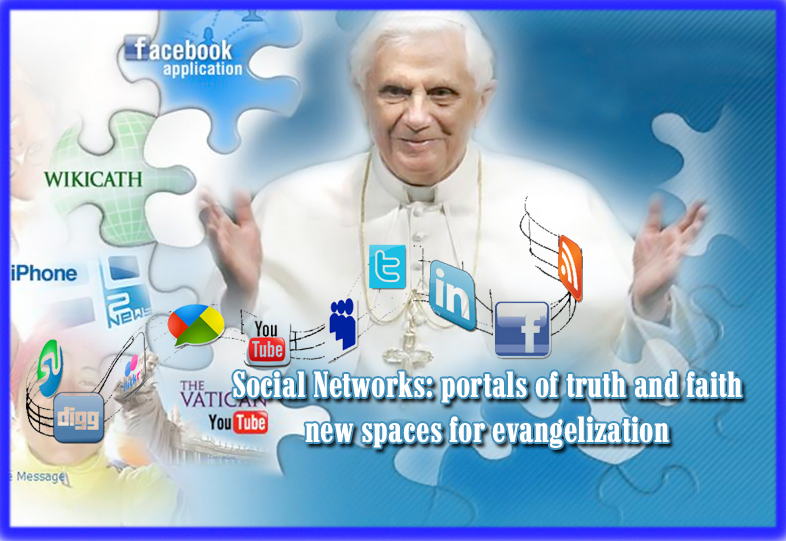
- Message for the 47th World Communications Day
-
Message of the FABC 10th Plenary Assembly Released -
Asia’s Bishops: Church Needs Renewed Evangelizers -
10 FABC Plenary Assemblies -
Instrumentum Laboris of FABC X Plenary Assembly -
On the Conclusion of the Synod of Bishops -
Final List of Propositions of the Synod of Bishops -
Official Summary of the Final Message of the Synod of Bishops -
Pope's Lenten message 2013: Believing in charity calls forth charity -
Papal message for the World Day of Migrants and Refugees
Popular Post

- History of the Catholic Church in Vietnam
-
Message of the FABC 10th Plenary Assembly Released -
Asia’s Bishops: Church Needs Renewed Evangelizers -
Instrumentum Laboris of FABC X Plenary Assembly -
10 FABC Plenary Assemblies -
Final List of Propositions of the Synod of Bishops -
Message for the 47th World Communications Day -
On the Conclusion of the Synod of Bishops -
Official Summary of the Final Message of the Synod of Bishops -
Pope's Lenten message 2013: Believing in charity calls forth charity


